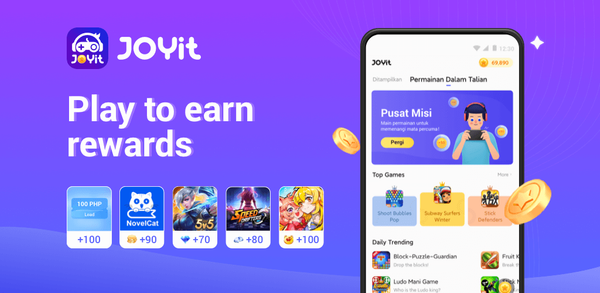Experience the thrill of playing games and earning rewards with play to earn rewards
Experience the thrill of playing games and earning rewards with play to earn rewards
Blog Article
Why Play-to-Earn Benefits Are Altering the Way You Play and Earn
The emergence of play-to-earn designs indicates a significant change in the pc gaming landscape, inviting players to check out not just the home entertainment value of video games yet additionally their potential as income-generating platforms. Comprehending these characteristics elevates pertinent concerns regarding the future of video gaming and the ramifications for both gamers and programmers alike.
Emergence of Play-to-Earn Models
Recently, the gaming market has actually observed a significant change with the introduction of play-to-earn designs, essentially modifying exactly how gamers involve with electronic settings. This cutting-edge technique permits gamers to obtain substantial benefits with their in-game activities, producing a shift from standard video gaming paradigms where enjoyment and competition were the primary motivations.
Play-to-earn models utilize blockchain modern technology and non-fungible symbols (NFTs) to supply players with ownership of in-game properties, which can be traded or cost real-world money. As a result, players are incentivized to spend time and initiative into games, fostering a feeling of company and financial opportunity. play to earn rewards. This change has actually attracted a diverse gamer base, including those who may have previously viewed video gaming as a purely entertainment task
A number of platforms have actually emerged, showcasing successful executions of this design, such as Axie Infinity and Decentraland. These systems have not just generated significant profits but additionally stimulated discussions around the sustainability and ethics of such financial systems. As play-to-earn designs remain to progress, they promise to redefine the partnership in between players, designers, and the broader electronic economic climate, leading the way for a new period in gaming.
Advantages for Gamers
As gamers engage with play-to-earn designs, they open an array of benefits that prolong beyond plain home entertainment. Unlike typical gaming, where players spend time and cash without substantial returns, play-to-earn systems enable players to gain copyright or in-game properties that can be converted to real-world value.
Furthermore, play-to-earn designs advertise neighborhood building among players. Players often collaborate to accomplish shared goals, thus cultivating social links that enrich the overall experience. This sense of community can lead to participating gameplay, where gamers share strategies and sources, boosting both individual and group achievements.
Moreover, these versions can equalize accessibility to video gaming by allowing gamers from varied economic backgrounds to profit monetarily. By getting involved in play-to-earn ecological communities, individuals can obtain abilities and understanding about blockchain technology, more expanding their job chances in the growing digital economic situation. Eventually, the benefits for players expand well beyond gameplay, impacting their social, financial, and academic landscapes favorably.
Difficulties in the Ecological Community
While the play-to-earn community presents substantial opportunities, it is not without its obstacles. One major problem is the volatility of in-game money and assets, which can bring about unforeseeable earnings for players. Fluctuations in value can deter prospective players that look for steady income streams - play to earn rewards. Additionally, the intricacies of blockchain technology may perplex users strange with digital money, producing obstacles to entry.
An additional challenge is the threat of rip-offs and deceptive plans that can plague the community. Players might come across deceptive systems guaranteeing high rewards yet eventually causing financial loss. Guaranteeing trust fund and safety is crucial for the long-term feasibility of play-to-earn versions.
Moreover, the ecological impact of blockchain gaming can not be neglected. The power intake associated with mining and purchase processing raises moral inquiries regarding sustainability. Game designers need to find a balance between satisfying gamers and decreasing environmental footprints.
Lastly, the regulatory landscape is still developing, posing possible risks for designers Continue and players alike. Uncertain lawful structures can impede development and limit the development of play-to-earn environments. Addressing these difficulties is necessary for understanding the complete potential of this transformative video gaming standard.
The Duty of Blockchain Innovation
Blockchain innovation functions as the backbone of the play-to-earn community, attending to most of the difficulties formerly outlined. By using decentralized ledgers, blockchain ensures openness and safety and security in purchases. Players can confidently earn and trade in-game assets, knowing that possession is verifiable and exempt to control.

Tokenization of assets plays a critical function, granting players real ownership of their in-game things, which can be gotten, marketed, or traded on various marketplaces. This encourages a vivid additional market, where gamers can monetize their abilities and time spent in the game.
In addition, blockchain modern technology makes it possible for interoperability in between various games and platforms, allowing gamers to bring their assets across various ecosystems. This adaptability not only boosts customer experience yet likewise her explanation promotes an extra comprehensive gaming environment, eventually reshaping the landscape of video gaming and earning.
Future Fads in Video Gaming
The pc gaming market is on the verge of a transformative development, driven by arising technologies and moving player expectations. As play-to-earn models gain grip, players are significantly looking for immersive experiences that blend enjoyment with substantial rewards. This shift is prompting programmers to innovate, concentrating on creating interesting gameplay that promotes area and interaction.
One noteworthy trend is the integration of online fact (VR) and increased fact (AR), enhancing the video gaming experience by supplying deeper immersion and interactive environments. Furthermore, developments in Extra resources expert system are enabling much more advanced non-player characters (NPCs) and flexible gameplay, tailoring experiences to private player choices.

Final Thought
To conclude, the play-to-earn design is substantially transforming the pc gaming landscape by enabling gamers to derive real-world worth from their in-game activities. This paradigm shift not just enhances player interaction and financial investment yet also increases challenges that must be addressed to guarantee sustainability within the ecosystem. As blockchain innovation continues to promote ownership of digital properties, the future of video gaming assures more technology and opportunities for gamers throughout diverse histories.
Report this page